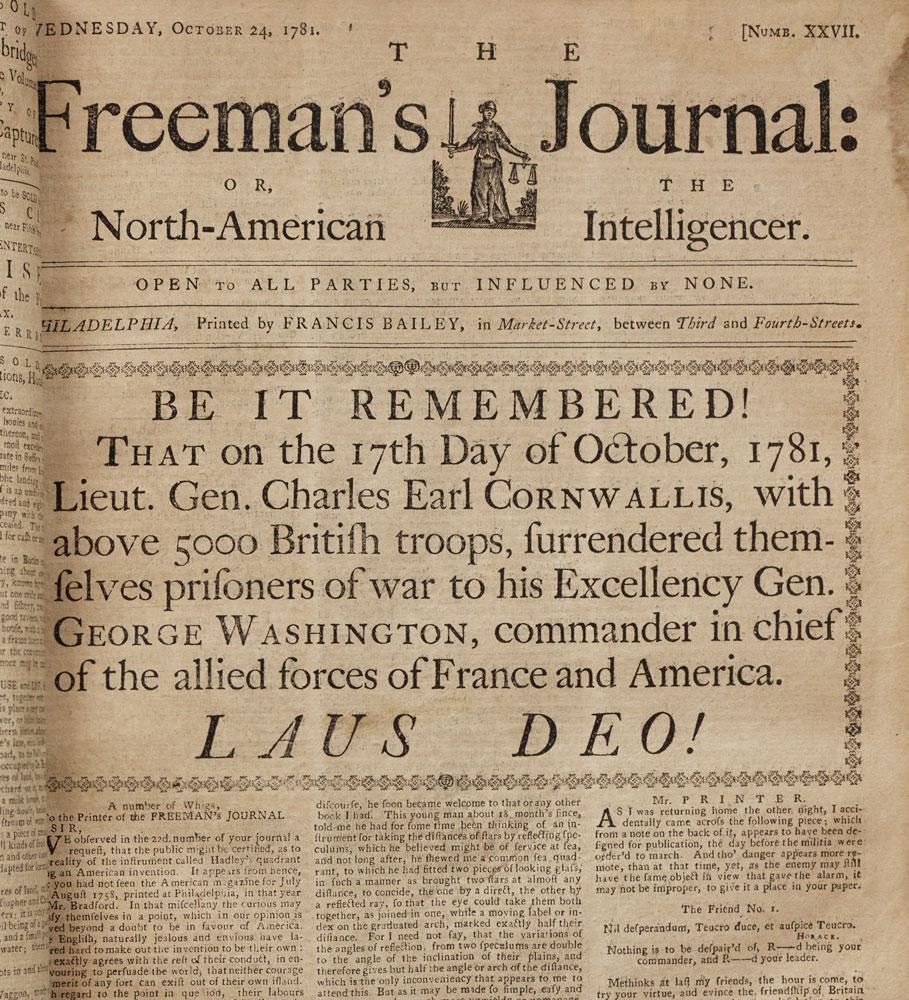The Vault is Slate’s new history blog. Like us on Facebook, follow us on Twitter @slatevault, and find us on Tumblr. Find out more about what this space is all about here.
On Oct. 24, 1781, the front page of Philadelphia’s Freeman’s Journal reported the news of British Gen. Charles Cornwallis’ surrender at Yorktown, Va., with unusual flash and vigor. Half of the front page is taken up by an announcement surrounded by a decorative border, and the news ends with the exclamation “Laus Deo!” (“Praise Be To God!”).
The surrender at Yorktown put an end to major hostilities in the Revolutionary War. Squeezed between 5,000 Continental troops led by the Marquis de Lafayette and a mixed group of 6,500 Continental and French men led by George Washington, Cornwallis’ 8,000 soldiers and seamen were overwhelmed, and reinforcements failed to arrive in time. The Treaty of Paris wasn’t signed for two more years, and British troops were slow to leave some American cities, but Cornwallis’ surrender was the beginning of the end.
As Mariam Touba, a reference librarian at the New-York Historical Society, writes, in Colonial papers big news was often relegated to inside pages. A browse through the volume Reporting the Revolutionary War, which collects pages from Colonial and British newspapers’ coverage of the war’s major events, reveals that it was quite uncommon for newspapers to use type that would yield print bigger than a cramped 8-point font. Somebody at the Freeman’s Journal must have correctly judged this news to be worthy of uncommon typographical enthusiasm.

Freeman’s Journal, October 24, 1781. Patricia D. Klingenstein Library, New-York Historical Society, Newspaper Collection.